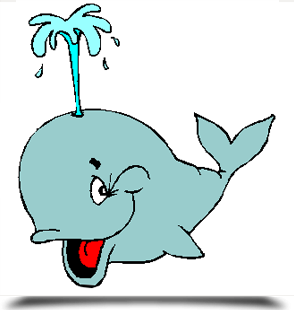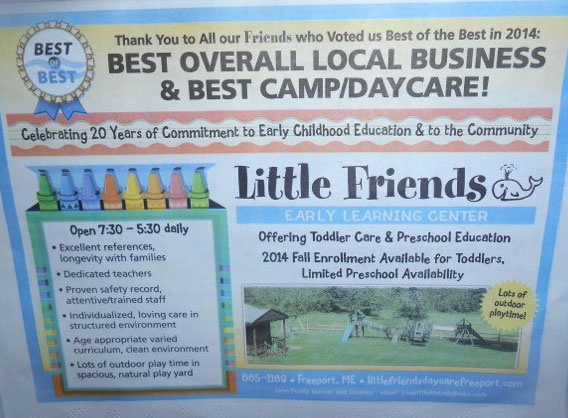There are no strangers here,
only friends waiting to be met.
Please call if your email is not responded to, The Director strives to return all emails in a timely manner. If following up with a phone call please repeat your phone number twice to ensure clarity. Thank you.
Background Information for Parents

- Physical – The growth of the body and skills, including fine gross motor abilities.
- Cognitive – The growth of brain development, including mental activities of thinking, remembering and solving problems.
- Emotional – The process by which children begin developing the capacity to express and interpret emotions.
- Social – The process of learning how to interact appropriately with others.
- Linguistic – Learners who learn by listening, speaking, writing and discussing.
- Logical-Mathematical – Learners who learn by problem solving and working with abstract concepts to figure out relationships between given information.
- Spatial-Visual – Learners who learn by sculpting, drawing building and looking at maps and charts.
- Musical – Learners who learn by singing, playing instruments, creating songs, and learning rhymes.
- Intrapersonal – Learners who prefer to work alone; are able to self-reflect and understand their relationships with others, as well as their own strengths and weaknesses.
- Interpersonal-Auditory – Learners who gather information best by listening, discussing ideas and participating in interactive games.
- Bodily-Kinesthetic – Learners who gather meaning through touch and movements and playing physical games.
- Naturalistic – Learners who learn by being outdoors and around animals.
- Analytical – Those that examine information by breaking it down bit-by-bit and arranging it logically.
- Global – Those that organize by clustering information into wholes.
Human development research indicates that there are universal, predictable sequences of growth and change that occur in children during the first years of life. These predictable changes occur in all domains of development: physical, emotional, social, and cognitive. Each child is a unique person with an individual pattern and timing of growth, as well as individual personality, learning style, and family background.
Little Friends’ staff understands child development and various ways children learn and process information. This information was used to create the teaching and learning environment at Little Friends. Little Friends also recognizes and responds to age appropriateness and individual differences. It is because of this individualization that the mixed age groups work, allowing children to reach their fullest potential.
The staff believes that learning is fun! We strive to teach the whole child including social, physical, and cognitive development. We treat each child as an individual and recognize his/her current abilities in all developmental areas. We strive to teach to their own level while supplementing with experiences to help them achieve the next level of development. The child is taught through play and natural experiences. Age appropriateness, teacher directed, early learning activities are supplemental. The program is designed to prepare children for success in kindergarten and grade school. We use an integrated approach.
Curriculum
This is a BRIEF overview; daily notes for each child provide detailed examples of curriculum materials covered that day.
- Language Arts – We offer experiences necessary for Communicating and Listening, Book Knowledge and Appreciation, Comprehension, Sounds in Spoken Language, Print Concepts, and Alphabet Knowledge.
- Math – We teach a variety of math concepts, concentrating on Numbers and Number Sense, Shape and Size, Mathematical Decision Making, and Patterns.
- Science – Children are introduced to Scientific Knowledge, Scientific Process and also participate in monthly science experiments.
- Social Studies / Life Skills – Children are taught independence, responsibility and self-control. Manners, friendship and tolerance are emphasized. Children develop understanding of the larger world through activities related to Families and Community.
- Creative Arts – Daily projects and other open-ended materials are provided. The focus is on the process rather than the product. Children develop skills, knowledge and appreciation of the arts by participating with increasing interest and enjoyment in a variety of music, movement, visual arts, and drama activities.
- Physical Education – Indoor and outdoor large motor opportunities are offered daily. Children develop knowledge and skills related to Healthy Habits and Gross and Fine Motor Skills.
- Music Class: Interactive sing-along with guest music teacher
- Cooking: Participatory class with specialized teacher
- Share Day: Opportunity for child to share book, toy, picture, story with class
- Guest Reader: Parent, friend, or community member invited to read to the children
- Math Graph Lesson: Children develop a bar graph with their teacher in a group setting
- Group Science Experiment: The children are exposed to the scientific method and conduct and experiment
- Respect other people’s right to learn and play in a safe environment
- Respect others
- Respect property
- Respect self
Standards
Circle Time Standards
- Ears Listening
- Eyes on the Teacher
- Hands in Lap
- Mouth Quiet
- Sit on Bottom
Standards for Early Learning Center
Circle Time – At circle time students join as a group to start the day. These include a variety of curriculum games, calendar activities, and attendance. Circle time culminates with theme songs and finger plays.
Early Learning Centers – Children can choose from a variety of centers daily including games related to: art and crafts, math, language arts, theme activities, large and fine motor play, and more! In order to assure an appropriate number of children at each center, children are asked to wear a matching necklace for that activity. Daily centers address curriculum and theme matters. The rice table and the sand table are available daily. Monthly specials, science experiments, and group graphs are experiences shared as a group then often replace centers on that day. Centers culminate with group story time.
The primary assessment tool is observation throughout the school year. A more detailed evaluation of each child is performed at the end of the preschool year (May). This is followed with a parent/teacher conference. Developmental concerns will be addressed with parents throughout the school year. Parents are always welcome to schedule a conference to discuss their child’s development.
Along with offering a complete preschool curriculum, Little Friends provides full-time day care. This enhances the experience for your child, offering more play and learning opportunities, as well as more observant opportunities and increased teacher/child interactions.
The staff is dedicated to learning current teaching methods in the field of early childhood education. The Staff follow the Maine Early Learning Guidelines. At the same time, we are committed to using traditional teaching methods that have been shown to be effective. Little Friends strives to focus on variety, and not stress one approach to teaching and learning, an integrated approach.
It is important to know that theorists, philosophers, and pioneers in the field of education have influenced the standards for early childhood education that we see today. Little Friends’ philosophy and curriculum are derived from this knowledge. Little Friends tries to be open to all the information and utilize that which has been proven effective in this particular environment. Little Friends will continue to respect the history of educating and be innovative toward future developments in the field including Maine’s Early Learning Guidelines.
This page was created to help answer common questions asked by parents/guardians. Information is discussed briefly, and thus can only partially describe all we do at Little Friends! Each subject area as well as historical matters deserves its own handbook. Our staff hopes this can provide insight into the depth of this particular program. If you have further inquiries about our curriculum for early learners, don’t hesitate to contact us today. We look forward to hearing from you soon.
Little Friends Early Learning Center
Jane Purdy, Owner/Director
Hours of Operation
Payment Options



